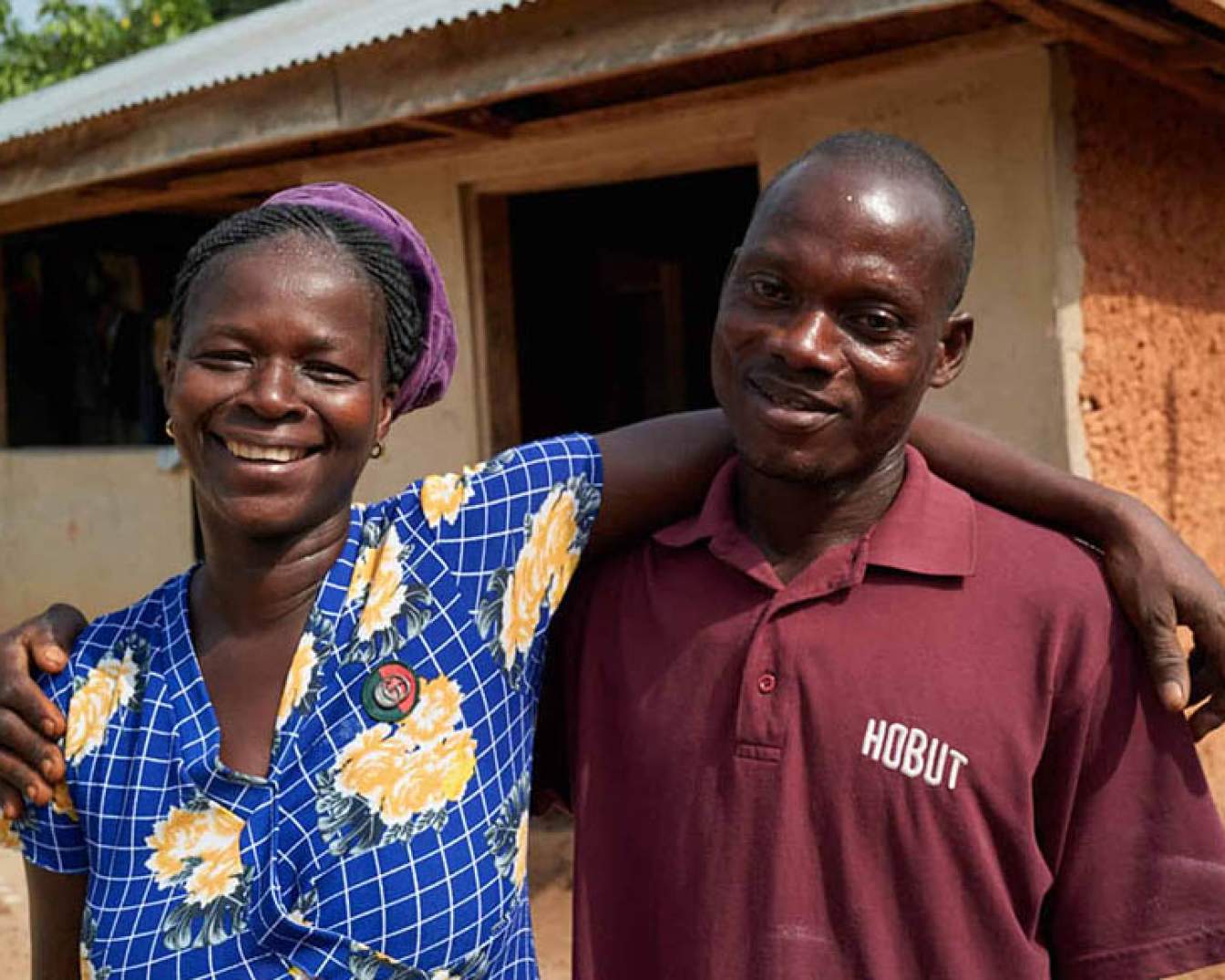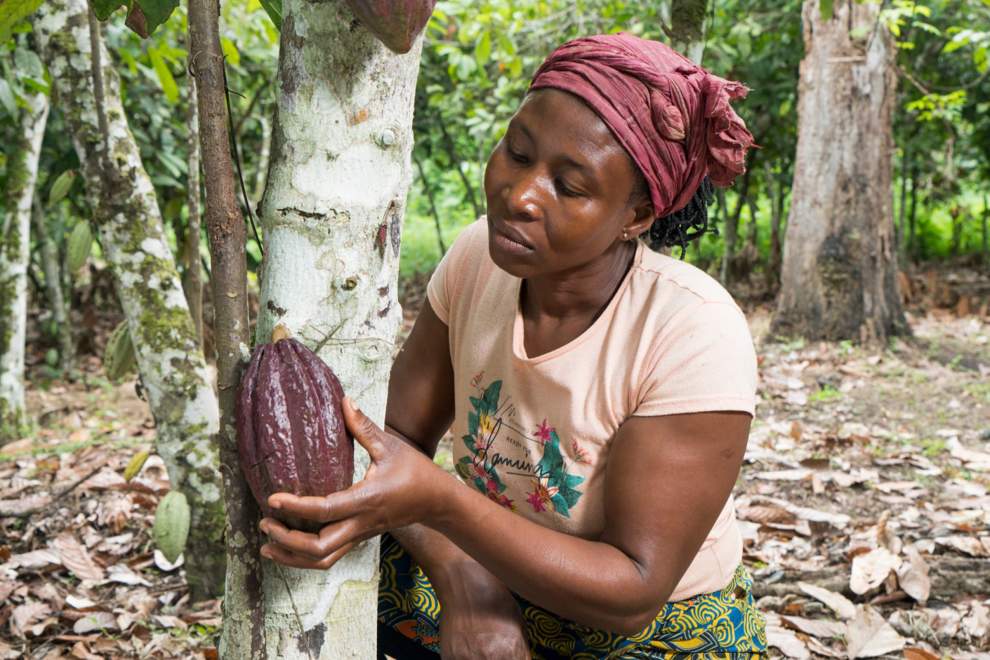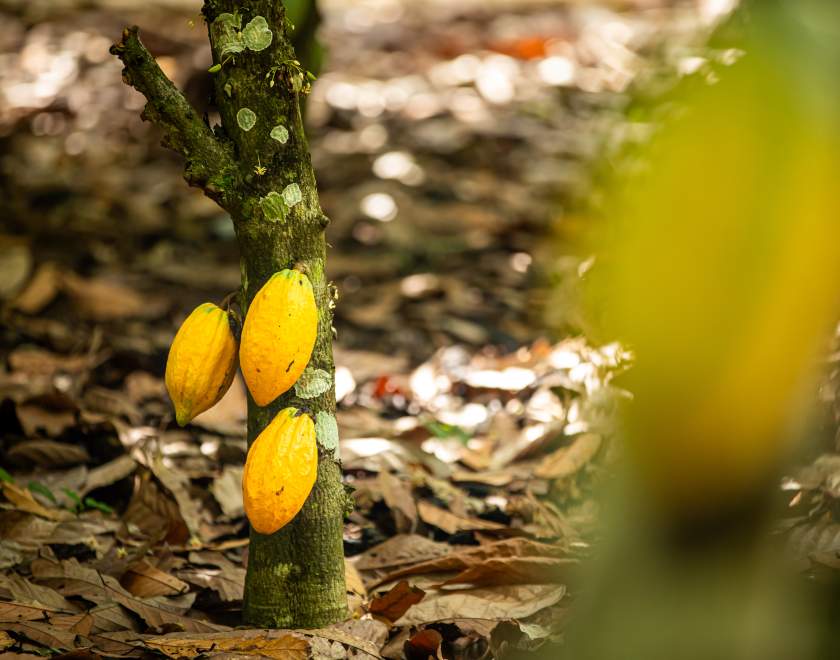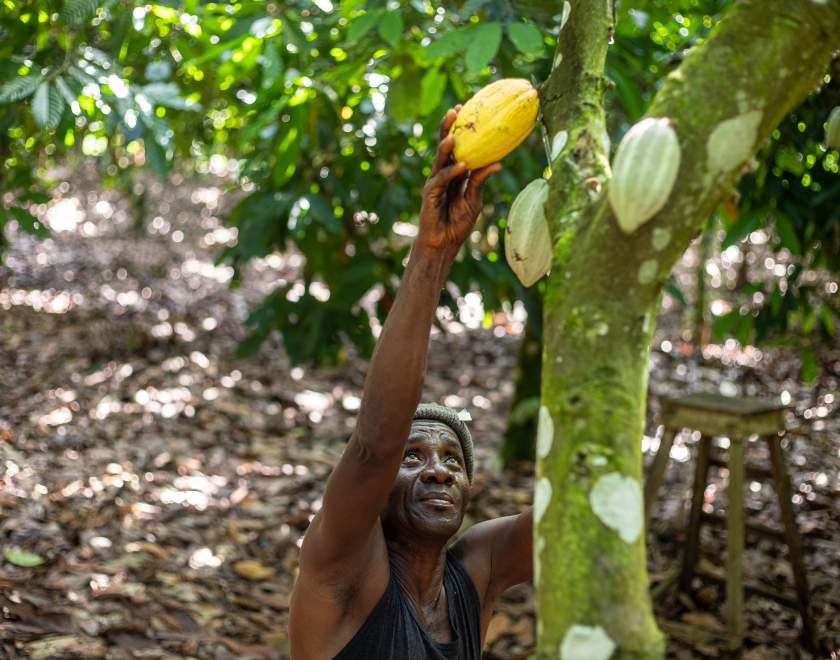Improving farmer income through sustainable practices
While cocoa is a vital income source for millions of smallholder farmers, the constraints of low yields and small farm sizes bring significant challenges to making a decent living.
While cocoa is a vital income source for millions of smallholder farmers, the constraints of low yields and small farm sizes bring significant challenges to making a decent living.
More than 90% of cocoa production globally comes from an estimated 5 to 6 million smallholder farmers. Cocoa farmers, mostly living in poor rural areas of Côte d’Ivoire and Ghana, face poverty due to limited resources, infrastructure and job opportunities. While cocoa is a vital income source, it has challenges such as low yields and small-sized farms. Low incomes contribute to issues like child labour and deforestation, emphasising the need for efforts to increase farmer incomes.
Companies and other sector stakeholders have implemented many diverse strategies to help raise farmer income and reduce poverty in cocoa-growing communities. Focus has been on boosting productivity by implementing good agricultural practices, using better planting materials and ensuring effective farm management. More targeted approaches, such as facilitating cash transfers, directly subsidising crucial farm maintenance, income diversification through other crops and businesses, and payments for ecosystem services, are being piloted.
Additional incomes of about US$10 billion per year are required for all farmers to earn a living income.
The net annual income required for a household in a particular location to afford a decent standard of living for all members of that household. Elements of a reasonable standard of living include food, water, housing, education, healthcare, transport, clothing and other essentials including provision for unexpected events.
Esther Dede and her husband Kofi Ebenezer are farmers in the Asawinso district in Ghana. Through farm rejuvenation, coaching, and agroforestry they have been able to improve their income.

Addressing rural poverty in cocoa-growing regions is not a one-size-fits-all solution, but a multi-faceted approach crucial for many cocoa farmers to achieve a living income. Many cocoa farmers live in poverty prevalent areas, where social services, infrastructure and off-farm income opportunities are limited. Improving income must take these factors into account.
Firstly, prioritising productivity through targeted Good Agricultural Practices, such as pruning and optimised fertiliser application, is crucial. Secondly, ensuring the efficiency of production methods, including labour allocation and input management, proves vital for success. Thirdly, encouraging income diversification by cultivating more than just cocoa enhances resilience and economic well-being. Lastly, addressing global price dynamics and ensuring international supply management is essential for stable and sustainable cocoa farming.
WCF’s 2030 ambition is to play a leading role in significantly increasing the net household income of cocoa farmers. Together with our members, we are committed to helping improve farmer income for millions of smallholder cocoa farmers.
WCF will launch a new collaborative programme to address farmer income in the near future. Learn more about our programmes and initiatives addressing cocoa sustainability issues.

The UN Sustainable Development Goals are 17 global objectives for addressing social, economic, and environmental issues by 2030, with the private sector playing a crucial role in delivering these. Success in this area will address:
Alleviating poverty in cocoa-growing communities in rural West Africa by raising farmer incomes.
Enhancing decent work and economic growth by improving incomes in cocoa farming.
Promoting reduced inequalities through supporting the success and attainment of a living income.

Cocoa Household Income Study Methodology

Cocoa Household Income Study Methodology